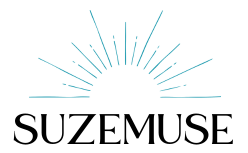I’ve really backed away from blogging in the past several months. The reason? Quite frankly, I felt that I had run out of things to say. Pair that with being overloaded with other projects, including writing projects, and I guess I just wandered away from it. For me, it was a healthy break, something that I think I needed after 9 years of consistently posting here. 9 years! In that time I’ve learned so much, made so many new connections, and grown my business. I owe a lot of my success to what I’ve done here. It’s been an interesting thing, walking away. Here’s what I have figured out as a result. I missed it like crazy. I really do miss blogging, a lot. But I felt as if my creative well had dried up. I really didn’t know what else I could say that would resonate with you. But I craved the process of writing and just hitting publish. I missed producing. And I’m glad to be back. I felt “out of the loop”. Through my blog I’ve been able to connect with people from around the world. People would stop by to leave comments, or they’d tweet me, or email me to talk about what I’d written. The conversations were rich and the connections were strong. When I stopped blogging I lost all that. I really did. I know the gurus don’t like it when people say “if you build it, they will come” but I think that if you write it, and it’s good, and it resonates with people, they WILL come, and they will stick around. I removed myself from the conversation and the conversation went on without me. I didn’t like that feeling. I stopped listening. One of the primary ways to get ideas for blog posts is to listen. Monitor your Twitter feed, and your blog feeds. Read voraciously. Attend webinars. I stopped making time to do those things and the ideas dried up. Listening is by far the most important thing you can do if you want to produce great content consistently. Now that I’m listening on a daily basis again, I can feel my well filling up with new ideas for me to explore. All in all, I didn’t mind walking away from my blog for as long as I did. It allowed me to explore other things, tackle some new projects and try stuff out. But I’m glad to be back at it. I know it is good for my soul and good for business. And to you, dear reader, I appreciate you stopping by, for taking the time out of your day to spend a few minutes with me. I hope to continue to provide value to you. Welcome back!
Are We Too Focused on the Next Big Thing?
I swear it was within 24 hours of Periscope launching a few weeks ago that I saw the first post “15 Ways Brands Can Get the Most out of Periscope” (or something to that effect). While it’s all fine and well to have an eye to the future, I firmly believe that we are still not totally up to snuff on the present. Brands are still struggling to figure out how to make the most of their blog and Twitter, which have been around for years, and now we have to worry about maximizing our exposure on all these new tools too? The pressure is on for many businesses and organizations to figure out how all this stuff works. I speak to people on a regular basis who are still perplexed about how to use social media. Those of us who are “old timers” (I’ve been around this social game since about 2006, and have been online since ’97) consider this stuff old hat, but I believe we are in the minority. Many, many folks out there are still learning the basics. I can only imagine how they must feel when they are suddenly faced with new discussions around new tools. Even us old timers feel a sense of “tool fatigue” sometimes. But all hope is not lost. If you’re one of those people who are still getting a handle on social media and our new digital world, don’t worry so much about that “next big thing”. Focus on the tools you’re comfortable with, and figure out the best strategies for leveraging them in your business. Read up on the trends but don’t feel like just because everyone is now talking about live video streaming that you have to jump on board. Even go so far as to play around with the tools. Being an early adopter doesn’t mean that you have to dominate new platforms. It’s good enough to just be aware. Focus on the things that have a payoff for you and for your business. Don’t worry so much about the rest. What say you? Do you think we’re too focused on the next big thing?
Why I Decided to Stop Working from Home
I’ve been a home-based worker for several years. For the most part, I’ve enjoyed my time in the home office. But lately something has changed. I’ve been less enamoured with working from home, and as a result my productivity has taken a hit. I have been thinking about what it is that has changed for me, and it boils down to this. I was lonely. Even though my chat windows and social networks are always a click away when I’m working, I still felt a real sense of loneliness. There’s something about the office environment, having other people around, the hustle and bustle, that is motivating to me. Even just having someone to say a friendly good morning to at the coffee maker can set your day off right. Working at home you miss all that. And it does get really lonely sometimes. I had to keep moving my stuff around. I have a home office set up and that’s fine, but when my partner and I need to get together to work on projects, I’m finding that I have to shuffle files around and carry a boatload of things with me to the coffee shop or her place or wherever we decide to meet. It’s inconvenient and I’m forever misplacing things as a result. I need a space to collaborate. Virtual collaboration can only get you so far. Yes, we have amazing tools like Google Hangouts that allow us to connect and work with each other. Call me old fashioned, but nothing trumps face to face for collaboration. I am in love with the idea of having a space to collaborate with my colleagues and clients. A home for my business, not my business at home. It’s just so much more real to me when I can have a physical space like that. There’s a sense of credibility. There’s something that legitimizes your business when you have a space to call home. It doesn’t have to be a big space (and believe me, our new office is not very big), but just having a place to hang your hat, a place to have clients in, gives a sense of real-ness that a virtual office just can’t give you. I will still keep my home office set up and will still work from home on occasion – sometimes you need the peace and quiet that comes from being in your own home. But I am looking forward to being in an office environment again. For me, people are vitally important to my success at work. That’s the piece that’s been missing from my equation. What say you?
My Three Words for 2015
For the past several years, I’ve taken a page from Chris Brogan‘s book and, instead of making new year’s resolutions, have created three words to define my year. I’ve found it to be a very beneficial exercise, because it serves as a reminder on a daily basis of what I need to work towards, and what I might need to change. To me, words are just words without action, so each word I’ve come up with will also have an action associated with it, that will help me in my daily quest. So without further ado, here are my three words for 2015. Moment This is my reminder to take each day one moment at a time. I have a tendency to rush through things, without stopping to really appreciate what’s happening right now. In 2015 I will stop more, and take notice of moments as they appear. To this end, I’ve begun a daily journal that I will use to reflect on each day and capture my moments. Movement Movement means many things. It means moving my body more, in an effort to continue on my journey to better health. It also means forward motion, in my career and in my life. It will also mean travel, which will be a bigger part of my life in the upcoming year. I’m renewing my commitment to regular exercise, to working hard to grow our business, and to take to the open road (or open skies, as the case may be) a little more often this year. Mindful I have a note on my wall that says “Tips for Mindfulness”. It goes like this: 1. Do what you’re doing 2. Pay attention to what you’re doing 3. Return to what you’re doing if your thoughts carry you away 4. Repeat 9 billion times. In 2015 I am going to work on being more mindful, not only of others but of myself. This has been a challenging thing for me in the past, but mindfulness has helped me deal with many things, including anxiety and depression. I’ll be getting back into the habit of a daily mindfulness practice. So there you have it! My three words for 2015. And you? What have you got in store for this brave new year? Share your thoughts, and your words, in the comments.
How To Become a Better Writer
This video by “Weird Al” Yankovic is my new favourite thing in the whole wide world: I had horrible grammar in high school, so much so that my Grade 11 English teacher told me that I’d “never be much of a writer”. As a result, I stopped writing for fun altogether, and didn’t pick it up again until some 20 years later when I started this blog. Now, I’ve written over 500 posts here, as well as my first book. I guess I showed her, eh? Writing is one of the few things I feel compelled to do. Not a day goes by where I don’t put fingers to keyboard. Whether it’s cranking out a proposal for Jester Creative, writing content for clients’ web sites, or even composing tweets, I enjoy the process of writing more than just about anything. Having come from a place where I lacked complete confidence in my ability to write, I feel that I am qualified to share some advice on how to become better at writing. So, here are my top tips for transforming yourself into a great writer. Learn the basic rules of grammar. You’re and your. There, their and they’re. It’s and its. These things hang a lot of people up, and there’s nothing that makes a piece of content look worse than not having the basics down. If you’re not sure how to use certain words, Google is your friend. Over time, you’ll get better at it, to the point where it becomes second nature. Read voraciously. I believe that the single best way to improve your writing is to read like crazy. Read articles, novels, non-fiction, and tweets. Read every single day. This is how you learn about flow, and pacing, and sentence structure. Pay attention to various styles of writing, from formal essays to casual conversational writing. When you sit down to write, these things will stick with you, and you’ll be able to use them in your own writing. Practice. I learned how to write well by writing 500+ blog posts, a book, dozens of web sites and more than 80,000 tweets. That may seem like a lot, but I am a better writer today than I was 10 years ago, and that is why. If you really want to write well, you have to learn by doing. Practice daily. You don’t have to make your writing public if you don’t want to (though I recommend that you do, as getting feedback from others is a great way to learn). You don’t have to create the next great novel your first time out. Start by keeping a journal, or a simple blog where you can record your thoughts. You’ll develop your own style over time and gain a lot of confidence in the process. Want to write? Then learn the basic rules, read, and actually write. You’ll soon find that you are more prolific than you ever thought possible. What about you? Do you have any tips for becoming a better writer?
The Virtual Office: Is It For You?
I have been working in a virtual office environment on and off for several years, and I love it. My company has dabbled in having a physical office at times, but it never really worked out for us, for various reasons – ultimately the extra expense just wasn’t worth it to us. We have four people on our core team – myself, my partner, our go-to multimedia developer guy, and our business development and social media maven. We have a lot of other people that we bring in on various projects as needed. All of us work independently in our own home offices, and get together in person when we need to. The virtual office environment isn’t for everyone, but we’ve realized it’s what works well for us. If you’re starting a new venture or even considering downsizing your current office environment, here are a few tips to help you decide if moving to a virtual office is for you. Do you trust your team? The absolute key to a successful virtual team is trust. You must trust your team wholeheartedly. When people are asked to work independently, they need to be able to do just that. Nobody is watching over their shoulder, making sure that work is getting done. There has to be trust and reassurance that the team is doing the work it needs to do. If you need to babysit your team members, it’s simply not going to work. Does your team have the tools they need? If you’re going to work virtually, you have to be mobile. That means the people on your team need to have the software they need to do their jobs , and the hardware too – tablets, iPhones, computers, and so on. They should be able to work from wherever they happen to be and have access to the tools they need. That means you may need to budget for software and hardware – but it’s still cheaper than renting an office! Do you have a central meeting spot? When you do need to meet face to face, have a few spots picked out that work. We will often meet at my business partner’s house, as it has the space we need for a team meeting. But a coffee shop or pub with wifi often works too! If you do need a quiet space to get the team together, consider booking a meeting room at co-working space. These spaces are available on an as-needed basis and are generally fairly cost-effective. Does your team collaborate well? There are lots of team collaboration tools out there and I’ve tried a number of them. But our team has found that what works best for us is a simple combination of email, text, Dropbox and Google Docs. We can get pretty much anything done virtually using these four tools. Email and text are great for individual or group requests and conversations, Dropbox is our go-to file-sharing tool, and Google Docs is great for collaborating on creative briefs, proposals, and other deliverables. But more important than the tools themselves, your team needs to have a spirit of communication and collaboration. Get in the habit of checking in regularly as a team, and letting others know what’s happening. You’ll avoid confusion and have way fewer fires to put out. Working as a virtual team is not only cost effective, it’s also productive. Without the distractions of an office environment, people are free and flexible to work as they are comfortable. And in my experience this has made for better results and happier clients. Have you tried working in a virtual team? Share your experiences in the comments!
How Are You Spending Your Time?
How much time per day do you spend online? Of course, this varies greatly, depending on the type of work you do, your interest in various sites, and that sort of thing. It’s different for everyone. Perhaps the question should be, “How much time do you waste online?”. The answer, if you’re anything like me, is probably “a lot more than I should.” The truth is, there are so many distractions these days that it’s hard not to end up down the rabbit hole of YouTube videos and status updates. But all of this distraction is eating away at not only our productivity at work, but our creativity in the rest of our lives. Studies have shown that 90% of the content contributed online is created by around 10% of the people. That means a lot of us are just passively consuming, and not really contributing anything new. But even those of us that are contributing on a regular basis are not necessarily that prolific. I know I haven’t been contributing as much. Perhaps that’s partly because I was busy finishing and releasing my book, but I know that there’s a part of me that still spends too much time watching cat videos. I just finished reading James Altucher’s book, “Choose Yourself”. It’s a wonderful read and it has caused me to re-think a lot about how I’m using my time. He talks about getting caught in “the loop” – you know the one – wake up, get coffee, check email, check Twitter, check Facebook, check blog stats, check email, check Facebook…before you know it, an hour has gone by and what have you really accomplished? Zip. In the past few weeks I’ve been paying a lot more attention to how I’m spending all of my time, not just online time. I’ve decided to watch much less TV – maybe just a show or two a week, and maybe a movie. The time I’m not spending watching TV, I’m reading books and insightful articles, writing, and getting out for more walks. I can already feel that my brain is happier. I’m avoiding the loop, by not checking email first thing in the morning, and by spending time over breakfast reading, coming up with ideas or just sitting quietly and enjoying the peace. I’m shutting down distractions like email and Facebook while I work, and I’ve found that I have a lot more time for serious thinking and contemplation. It’s allowed me to come up with some great new ideas for our business and be really focused on how we are going to implement them. I’m also sleeping more, and that is allowing my brain to be a lot more energized during the day. 8-9 hours a night is my sweet spot, and I’ve learned it’s vitally important to my success and well-being. Our time is a precious commodity – we only have 24 hours in our day. If we use up too much of that time on mindless things like reality TV and Facebook games, what do we have left? I’m not saying we shouldn’t have down time. I’m highly in favour of spending time with friends, reading a trashy novel on the beach, or even watching an episode of Pawn Stars occasionally to unwind. I’ve learned it’s a delicate balance, and for me, I’m happiest when my brain is doing things that inspire and motivate me. I encourage you to take a good long look at how you’re spending your time each day. Are you doing things each day that get you closer to your goals? Or are you whittling away what precious time you do have on things that may not be getting you anywhere?
Networking Tips for Students
I’ve been having a really fun time this summer teaching Project Management at Algonquin College. I’m working with a really great bunch of students who are going to be the next wave of digital mavens, helping people just like you get ahead in this crazy online world. One of the questions I’m asked the most as a teacher is, “How can I find meaningful work after I graduate?”. It’s an important question, in an age where emailing your resume to companies just doesn’t cut it anymore as a way to get your foot in the door. What does it take to truly get on the inside track to finding work in this industry? One word. Networking. Ah yes, networking…that task we love to hate. It’s a rare person that I find who feels great about entering a room full of strangers with the sole purpose of introducing yourself and getting to know people. In fact, the very thought of networking strikes fear into even the most confident people. Add on top of that being a new grad, and it’s enough to send students running for the exit. So how do you get out there and get networking as a student or new grad? Here’s what I know. Find events. The first thing you’ll want to do is find events in your city or town that you might be interested in attending. How do you do this? Head to your friend Google. Do a search for “networking events in [your town]”, and see what comes up. Also search for “professional associations in [your town], and check out their web sites for upcoming events. Make target list and plan to get to a couple of events a month if you can. It’s the single most effective way to meet people and build connections. Go for coffee. Lots of coffee. After you graduate, make sure you don’t lose touch with the people you were connected to while at school. Start a private Facebook group for alumni and work at maintaining connections with your classmates. Stay in touch with your profs, too. Invite them for a coffee every now and again, and catch up. My first job out of multimedia school was with one of my prof’s companies, why? Because I stayed in touch with her. And to this day, some 17 years later, she’s still sending work my way! Also keep in touch with clients you worked with during your program. Again, dropping them an email once in a while to let them know what you’re up to, or inviting them for a coffee is a great way to keep the lines of communication open. Put yourself out there. Once you get to those networking events, don’t forget to get in there and introduce yourself. Spend more time asking about other people than talking about yourself. Bring business cards but only give them out after you’ve had a good conversation with someone, or if they offer you their card first. Make sure that the info on your card is up to date and accurate, and make sure that you have a portfolio or resume somewhere online that people can view. I hear so often from students that don’t event have a description of their work online (think LinkedIn profile). As a prospective employer, I want to know what work you’ve done, what you’ve learned while in school and how you’ve applied it. If I can’t find you online, I will soon forget about you. Finally, don’t forget to keep track of the people you’ve met. You don’t have to get all fancy with a database…just keeping a list of who you connected with and where they are from in a simple spreadsheet or Word doc is great. Refer to your list often, and follow up with people. Finding a job these days is 99.9% WHO you know. So get out there, and get to know people! Do you have networking tips to share? Drop them in the comments!
What Happened to the Conversation of Twitter?
Twitter is my favourite social network, or at least it used to be. In the past six months or so, my Twitter usage has taken a huge nose dive. At first I wasn’t really sure why, but as I’ve really started to analyze it, I’m starting to figure it out. Nobody’s having conversations anymore. There was a time when I used to be able to log on to Twitter at any time of the day and post something – a question, a photo, a link – and I’d generate some type of response. Maybe it would be a comment, maybe a few retweets. But something has changed. There’s just not the same level of interaction as their once was. At first, I thought it was that maybe I’d become less interesting. While it’s true that I haven’t been blogging as much lately (that’s about to change, so hold onto your hats!), I don’t think what I talk about on Twitter is any more or less interesting than it’s ever been. No, I think it’s that Twitter itself has changed. These days, I see a lot of people talking, but not a lot of people having conversations. It’s a lot more shameless self promotion, complaining, and nit-picking and a lot less “hey, how are you?”. Even in the mornings, which used to be my favourite time of day to log on, I’m seeing less and less of the usual suspects. I find the whole thing rather frustrating. What was once a dynamic, vibrant, social place has become a desert of mindless marketing messages and inane information. I really miss the conversation of Twitter. I miss the connections to others, and I miss the chit chat. In 2009, Twitter was one of the primary ways that my company drove new business. Now it’s just a place I check into once or twice a day without giving it much thought. Is it just me? Or have you noticed the lack of conversation too? Has Twitter changed? Or have I changed?
Are You Telling The Right Stories?
I believe the most successful people in the online world are the ones who are able to tell great stories. Be it 140 characters at a time, or through an epic blog post or compelling video, true storytellers rise to the top in the sea of noise that is the social web. As producers, we all strive to tell the stories of our lives, our businesses and our causes. We want the world to hear what we have to say and we want people to take action on what they read. But how do we discover our stories in the first place? How do we know what needs to be told? Here are some thoughts. Don’t Be Too Close To It Key messages. Communications strategies. KPIs. All of these are important parts of any digital marketing strategy. However, sometimes it’s easy to get mired in the granularity of these documents. When we are in the weeds, we can miss the things that are right in front of us. People don’t want to hear key messages repeated over and over again. They are unlikely to respond. Instead, tell a story that resonates. Ideally, a story that involves real people. Share a moment of success, or a funny anecdote. Build the character of your organization through poignant, timely stories, and save the key messages for your monthly reports. Anecdote, Reflection In my latest book, Produce: The Art of Creating Digital Content Using Professional Production Techniques, I talk about Ira Glass’ theory of the “building blocks” of stories. He says that great stories are built on two things, anecdote and reflection. Think of an anecdote as an action. What is happening, how is the story moving along? This is the root of all great storytelling. Something happens. Then something else, then something else. But you can’t just leave it at that. For your story to be truly great, you need eventually tell people why you’re telling them the story. That’s reflection. That’s where people sit back and say, “Ahhh. I’ve just learned something.” Stories that master the art of anecdote and reflection are the ones that invoke a response. That response could simply be an emotional one (sadness, humour, inspiration) or it could be a physical one (click a button, buy a product, make a donation). Understanding this one thing will instantly make you a better storyteller. We Are All Producers Now Even if you don’t think of yourself as a producer of content, you are. Maybe you don’t blog regularly, or podcast, or make videos, but every time you post a photo to Facebook, tweet something clever, comment on a post, or leave a review, you are producing content. Is that content of value to the community that you’re sharing with? Is it helping you to get your message out there? Chances are, it is. And whether you’re marketing a business or trying to get people to donate to your walkathon, framing your content in a story is going to get you farther than just posting a link. Take my friend Bob LeDrew for example. He could have just solicited donations for his Ride to Conquer Cancer. But instead, he found a story. That story was to give all people who donated $100 or more a special song, performed by Bob just for them. Anecdote. Watching Bob actually rack up donations to the tune of over $5000, and record dozens of songs for folks from across the country shows one man’s determination along with a coming together of a community of supportive and generous people. Reflection. Stories are everywhere, if you know where to look. Find the stories inside your message. Tell those stories. Give people something that compels them, and give them something new. Create things. Produce. Want to know more about creating great stories? Pick up a copy of my book at Amazon:





